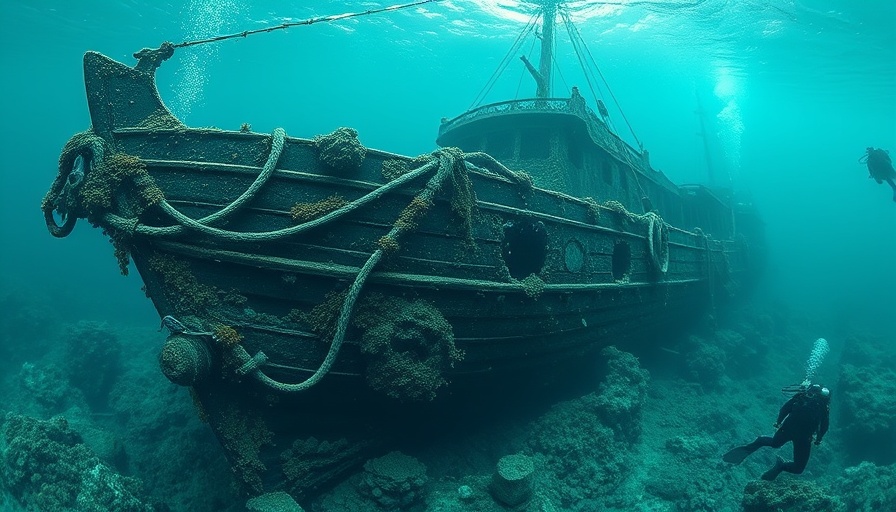
A Voyage Through Time: The Ghost of Lake Michigan
In a stunning revelation, researchers from the Wisconsin Historical Society unearthed the F.J. King, a sunken schooner that had lain undiscovered under Lake Michigan for 139 years. This remarkable shipwreck, known as a "ghost ship," was finally located during a research initiative that took place on September 15, 2025, offering a unique glimpse into maritime history.
The F.J. King: A Forgotten Story
The F.J. King was lost to the depths of Lake Michigan in a fierce storm back in 1886. Carrying iron ore on its final journey, the vessel encountered treacherous weather conditions near Baileys Harbor, leading its crew to abandon ship as water flooded the hull. The captain and crew clambered onto a yawl and, much to their relief, were rescued by another vessel, watching helplessly as their ship sank bow-first into the chilly waters.
This maritime tragedy has tantalized historians and explorers for decades; rumors about the ship's location persisted as fishermen claimed they snagged its remains in their nets and lighthouse keepers reported sightings of its masts protruding from the surface. Yet, despite numerous attempts, no one had succeeded in pinpointing the wreck.
The Search Party: Citizen Scientists and Historians
Fast forward to September 2025, when a dedicated team composed of professional divers, historians, and volunteer citizen scientists embarked on a mission to uncover the truth. Led by Brendon Baillod, the president of the Wisconsin Underwater Archaeology Association, the team brought decades of research and a grid-based search plan to the depths of Lake Michigan. Remarkably, within just two hours, the sonar equipment picked up an unmistakable object: the F.J. King, which was confirmed shortly after.
“A few of us had to pinch each other,” shared Baillod, reflecting the excitement of finally realizing a long-held hope that had danced just out of reach for so many years. The thrill of exploration, community, and discovery resonated through the group as they prepared to document this piece of history.
Why This Rediscovery Matters
The discovery of the F.J. King is not just about the ship itself; it represents a revitalization of interest in nautical archaeology and connects present-day communities with their maritime heritage. The preserved wreck is expected to yield insights into shipbuilding methods of the 19th century as well as the historical context surrounding the Great Lakes' shipping industry.
This find exemplifies how community involvement in local history can lead to remarkable outcomes. Locals from Wisconsin have consistently engaged in preserving and celebrating their aquatic legacy, emphasizing the importance of history in everyday life.
Looking Ahead: Preservation Efforts
With the successful identification of the ship, efforts are underway to preserve the wreck site. The Wisconsin Historical Society plans to nominate the F.J. King for inclusion on state and national registers of historic places. This will ensure that the site is protected, and future generations can learn about and appreciate this time capsule of maritime history.
Additionally, there may be plans to open the site for public education and exploration, bringing to life tales of the ship’s journey and losses faced by those who sailed on the Great Lakes.
Conclusion: Treasure Beneath the Waves
The F.J. King, lost but not forgotten, holds a treasure trove of stories waiting to be told. As researchers continue their work, new narratives will emerge, connecting past and present through voices long silenced by the depths. For those intrigued by the waters of Lake Michigan and the history they conceal, there is a growing body of knowledge now accessible through dedicated exploration.
Whether you're a history buff, a curious adventurer, or a resident of Louisiana over 60 looking to connect with your roots, the rediscovery of the F.J. King serves as a reminder that even the most elusive ships can resurface, like lost memories waiting to be cherished again. Get involved in preservation efforts or local historical societies to contribute to these vital endeavors.
 Add Row
Add Row  Add
Add 



Write A Comment